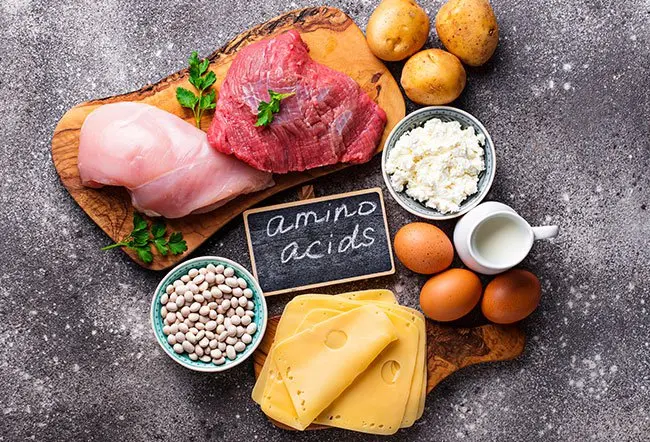FDA Method Validation Protein and Amino Acid Analysis in Pet Foods
The FDA method validation process is a critical procedure that ensures the accuracy and reliability of protein and amino acid analysis in pet food products. This service focuses on validating compliance with FDA guidelines for assessing the nutritional content, particularly protein and essential amino acids, which are fundamental components of pet food formulations.
The primary objective of this test is to ensure that the declared levels of protein and key amino acids match the actual quantities present in the product. This validation process involves several steps, including the selection of appropriate analytical methods, preparation of calibration standards, and analysis of samples under controlled conditions. The results are then compared against established reference values to verify accuracy.
Protein content is often expressed as crude protein in pet food products, but it's important to understand that not all proteins contribute equally to essential amino acids required by pets for growth, maintenance, and health. Essential amino acids such as methionine, tryptophan, lysine, arginine, threonine, and cysteine play crucial roles in supporting various physiological functions.
The FDA recognizes the importance of accurate protein and amino acid profiles to ensure consumer safety and product integrity. Compliance with these regulations is essential for pet food manufacturers to avoid legal issues and maintain a positive reputation among consumers. Our laboratory employs state-of-the-art analytical techniques, including high-performance liquid chromatography (HPLC) and near-infrared spectroscopy (NIRS), to conduct this validation process.
During the test, we prepare samples by extracting proteins from pet food formulations using acid hydrolysis followed by filtration and dilution. This ensures that only free amino acids are measured accurately without interference from other compounds present in complex matrices like pet foods. Our team then uses validated methods to analyze these extracts for their amino acid composition.
The results of this analysis provide valuable insights into the nutritional quality of pet food products, helping manufacturers ensure they meet regulatory requirements and consumer expectations regarding protein content and essential amino acids. By validating our tests against established standards like those provided by the FDA or other relevant authorities such as AAFCO (Association of American Feed Control Officials), we guarantee high-quality, reliable data.
Our approach ensures that every aspect of the testing process is meticulously controlled to minimize errors and variability. This includes precise sample preparation, optimized instrument settings, and rigorous quality control measures throughout each step of the procedure. As a result, clients receive accurate and reproducible results they can trust when making decisions about their pet food formulations.
Understanding the nutritional profile of pet foods is vital not only for regulatory compliance but also for optimizing product performance and meeting customer needs effectively. Our laboratory offers comprehensive services to support manufacturers in achieving these goals through precise protein and amino acid analysis validated according to FDA guidelines.
Industry Applications
| Application | Description |
|---|---|
| Pet Food Manufacturing | To validate protein and amino acid content in pet food products. |
| Regulatory Compliance | To ensure adherence to FDA regulations on nutritional labeling and composition. |
| R&D Optimization | To fine-tune formulations based on accurate nutrient profiles for improved product performance. |
| Quality Control | To monitor consistency in protein and amino acid levels across different batches or production runs. |
| Supplier Evaluation | To assess the quality of raw materials used in pet food manufacturing. |
| Product Development | To develop new formulations that meet specific nutritional targets for health and wellness benefits. |
| Consumer Satisfaction | To ensure products deliver on their promised nutritional claims, enhancing customer trust and satisfaction. |
Why Choose This Test
The FDA method validation protein and amino acid analysis service is essential for pet food manufacturers who want to ensure they meet regulatory requirements while delivering high-quality products that satisfy consumer expectations. By choosing this test, you gain several advantages:
- Regulatory Compliance: Ensures adherence to strict FDA guidelines on nutritional labeling.
- Precision and Accuracy: Utilizes advanced analytical techniques to provide precise results.
- Consistency: Maintains consistent quality across all batches of pet food produced.
- Optimization: Helps manufacturers fine-tune their formulations for optimal performance.
- Trust: Builds trust with consumers by delivering products that meet or exceed nutritional standards.
- Comprehensive Insights: Offers detailed information on the protein and amino acid profiles of pet foods, aiding in formulation decisions.
- Efficiency: Minimizes time spent on troubleshooting issues related to nutrient content.
In summary, selecting this service allows you to produce reliable, compliant, and high-quality pet food products that meet both regulatory standards and consumer demands.
International Acceptance and Recognition
The FDA method validation protein and amino acid analysis is widely recognized in the global pet food industry. This service aligns with international standards such as those set by ISO, IEC, and other relevant authorities, ensuring that results are universally accepted and comparable across borders.
By validating your tests against these internationally recognized guidelines, you demonstrate commitment to quality and reliability, which is crucial in today's competitive market environment. This recognition also helps build credibility among stakeholders including regulators, suppliers, and consumers alike.
The FDA method validation process not only ensures compliance with domestic regulations but also supports export markets where similar standards are enforced. For instance, many countries have adopted or adapted the FDA guidelines for their own regulatory frameworks, making this service particularly beneficial for companies looking to expand internationally.
Moreover, adhering to these rigorous testing protocols enhances your company’s reputation as a leader in pet food manufacturing and quality assurance. It reassures customers that you are committed to providing safe, nutritious products that meet the highest standards of industry practice.
In conclusion, choosing this service positions your organization at the forefront of innovation and excellence within the pet food sector, paving the way for sustained success both domestically and abroad.





